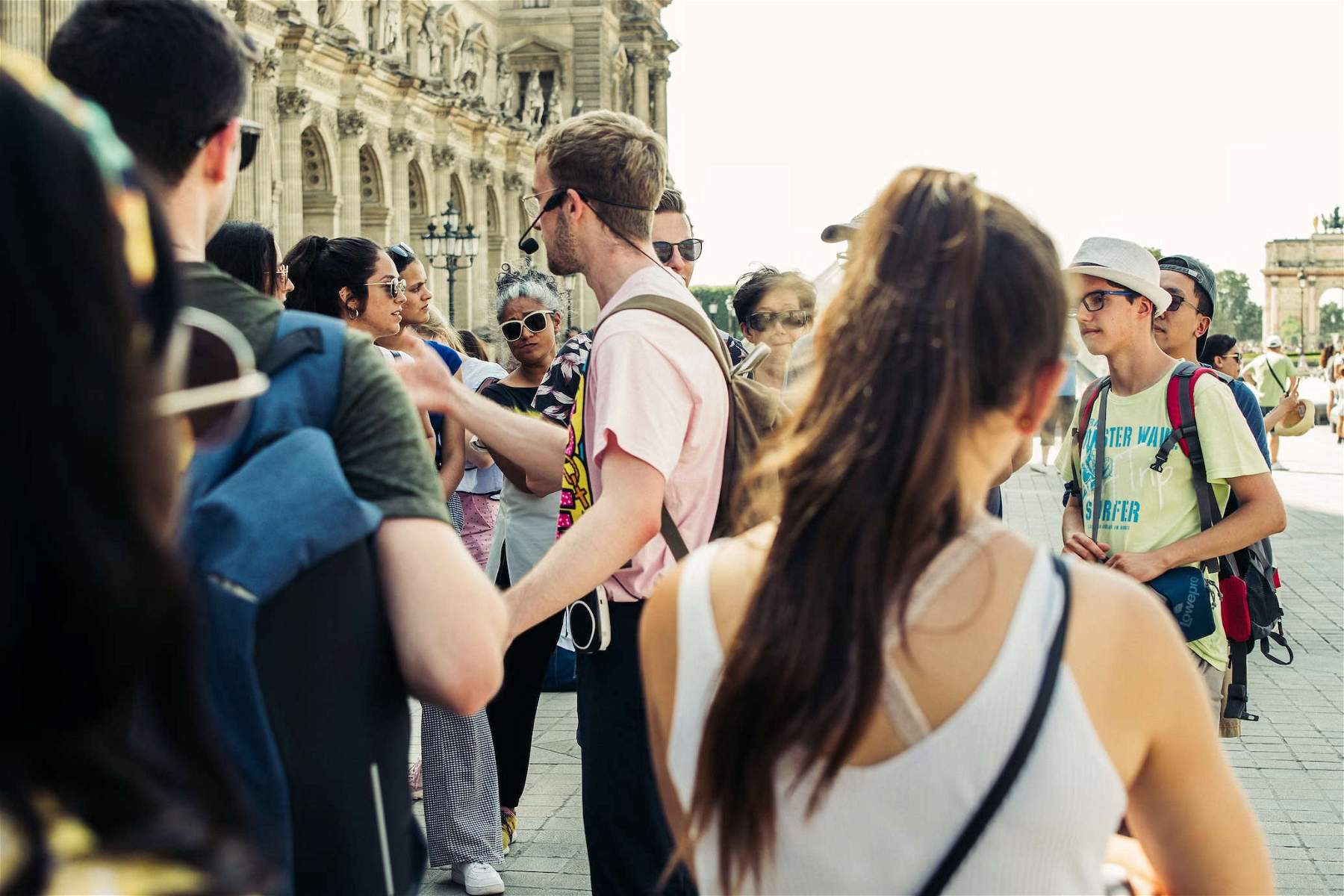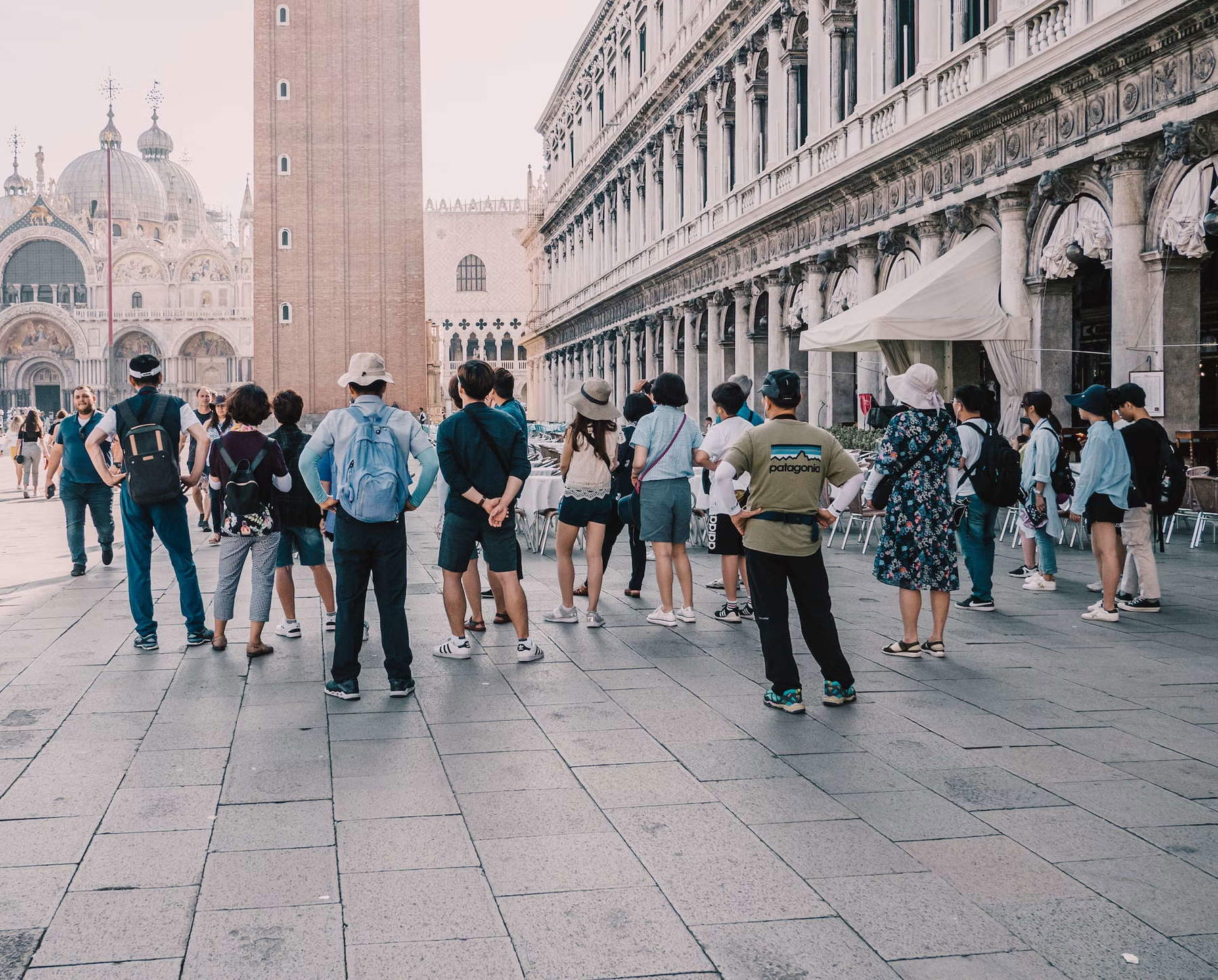Tour guides, new reform of the profession approved. What it provides, reactions
After about 10 years of stop-and-go, Parliament passed the new reform on the profession of Tourist Guides. A remarkable achievement in a country like ours being the people who come into contact with important tourists as if they were our calling card. The new legislation in fact passed with the favor of all political forces as there was no vote against it: the oppositions were divided between those who voted with the majority and those who abstained. The 15-article bill regulating access to the profession was finally approved in the House with 139 votes in favor, 80 abstentions, and none against. Pd, Avs and M5S abstained, while Iv and Action voted in favor with the majority.
The new legislation, which affects about 9 thousand guides and tour leaders was a commitment contained in the NRP, in “Mission 1” and classification C3 “Reform 4.1 - Ordering of the professions of tourist guides” where it states that “the objective of the intervention is to give, in compliance with local regulations, a professional order to tourist guides and their area of belonging. The reform must allow the acquisition of a univocal professional qualification in accordance with homogeneous standards at the national level, adopted by ministerial decree within the framework of the State-Regions agreement. Systematic and homogeneous application of the reform would make it possible to regulate the basic principles of the profession and standardize service delivery levels throughout the country, producing a positive effect on the market. The reform must provide for professional training and upgrading in order to better support supply.”
“We must be proud,” says Tourism Minister Daniele Santanchè,“to have reached this important milestone, made possible also thanks to the fundamental collaboration that the ministry has initiated in recent months with the tour guide associations, which has led us to find an effective synthesis on the discipline, demonstrating - once again - how only with teamwork can great results be achieved. Considering the current regional fragmentation, it was necessary to define an unambiguous professional regulation and a homogeneous standard of performance levels, as well as a tool to fight abusive practices, for that category of operators who represent the backbone and business card for those who come to Italy.”

What the reform of the tour guide profession provides for
First of all, it should be said that the tourist guide profession will be given the dignity of all others in that it will be identified with a specific Ateco code by Istat, to define a precise classification of the activities inherent to the profession, and the possibility of achieving further thematic and territorial specializations.
The most important novelties are the introduction of a licensing exam for registration in the National List for those who will offer themselves to this profession from now on, and above all the possibility of working throughout the country since today licensing is only regional. The point about the possibility of practicing the profession in the widest possible territory or limited to regions or cities of ’residence’ has been one of the most controversial in recent years since guides from renowned cultural destinations felt their market threatened by the arrival of guides from other parts of Italy making competition. Exclusion from the list is provided only for temporary, occasional or free activities at sites that do not qualify as cultural sites
As with all professions, there is also a three-year updating requirement with theoretical or practical courses organized by the Ministry of Tourism. Those already practicing the profession will not have to take an exam: guides who are already practicing will be enrolled in the List after submitting an application. Those who hold a foreign qualifying title will not have to take the exam either.
Specifically, on the licensing exam there is to say that it will be divided into three parts (written, oral and practical test) and will be called at least once a year by the Ministry of Tourism. But in turn, in order to take the exam one must have at least a bachelor’s degree and certification in at least two foreign languages, one of which must be at a proficiency level (in the international classification) C1, and the second B2. And the text also provides for penalties to be applied in case of abusive practice of the profession and for people who use it while not registered in the national list to conduct guided tours.

Reactions
Valeria Gerli president of Confguide, the National Federation of Tour Guides of Confcommercio, speaks of it as a process that has “finally come to an end after ten years, during which Confguide has worked hard, together with Confcommercio Professions, to obtain a measure in line with the needs of the category. It is an absolutely necessary law to fight abusive practices, guarantee jobs for the category, and give new tour guides access to the profession in a legitimate way. Concerns remain about exemptions to the possession of the license in some particular cases, activities carried out remotely, in an ancillary and educational capacity.” That of the Guides is “a central figure in the enhancement, explanation, understanding, correct dissemination, access to knowledge of the Italian cultural heritage to make it understood, appreciated and respected,” he stresses, and since the law to be fully operational now needs the approval of some implementing decrees Gerli points out the importance of “being involved, because from these decrees derive constraints and opportunities in the concrete implementation of the norm.”
“We call for a fast pace and involvement in the implementing decrees,” says Micol Caramello, national president of Federagit, the association of Confesercenti tour guides and tour leaders, likewise. “Tour guides are a fundamental link in the supply chain for the proper promotion of Italy’s cities of art, as well as an important piece in deseasonalizing tourist presences, with the inclusion of destinations that are still little known and sold, such as small villages and rural and seaside resorts.”
The GTI Italian Tourist Guides speak of a very special day, a day they have been waiting for, for ten years. “Today at last,” the association comments, “we have a law that recognizes the Guide as a level professional figure who can work throughout Italy and not an expert confined to narrow local or provincial areas. It has been a long journey and there is still much to do and build, but it closes a cycle. It is a law that is not 100 percent as we GTI Guides wanted it to be, to some compromises we had to come down and something we did not manage to achieve but these are small things and we believe that is the price to pay for the result.”
Enthusiastic was the comment from AGTA Association of Licensed Tourist Guides, which, as soon as the measure was approved, wrote on Facebook, “It’s done! This time the law is really there. After years of decrees, understandings and tattered texts, we were almost afraid to believe it. Thank you to Minister Daniela Santanchè for the goal finally achieved.” AGTA’s national president, Isabella Ruggiero, explains how this is “A reform we have been waiting for 10 years, during which the category of guides ended up in regulatory chaos with the consequent flourishing of figures with similar names but not licensed and with unchecked skyrocketing abuses. Taking into account the context in which this measure was born, we are very pleased. Indeed, we need to be clear about the elements on which the law has grafted itself: the European regulations, which the Italian legislature must comply with; the 10-year vacatio legis that cannot be erased with a stroke; and finally, the many forces in the field, with various important players touched by this law but often with interests different from ours. There are a few points that we would have liked to modify, to further limit the abuse of the activity by European casual lenders and of the recognition of foreign licenses, but the time was very tight and the main objective was to get to the finish line in time, marked by inclusion in the financial bill and in the NRP.” Among the points he points out as positive is the one where by law it is stipulated that “the entry and performance of the activity of a tour guide may not be barred or hindered” in institutes and places of culture, including those belonging to private entities open to the public; the right to free entry to all public sites, whether for work or for training; and the “sanctions against both squatters and agencies and intermediaries who use them, including digital platforms and websites, assignment of controls to municipalities.”
 |
| Tour guides, new reform of the profession approved. What it provides, reactions |
Warning: the translation into English of the original Italian article was created using automatic tools. We undertake to review all articles, but we do not guarantee the total absence of inaccuracies in the translation due to the program. You can find the original by clicking on the ITA button. If you find any mistake,please contact us.





























